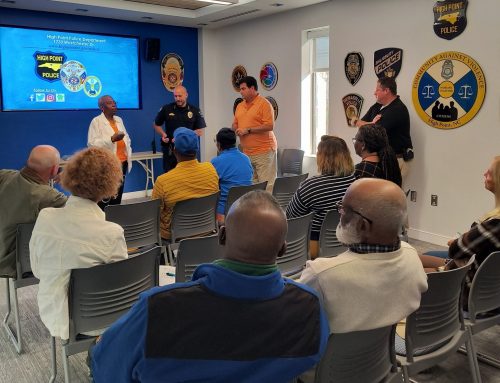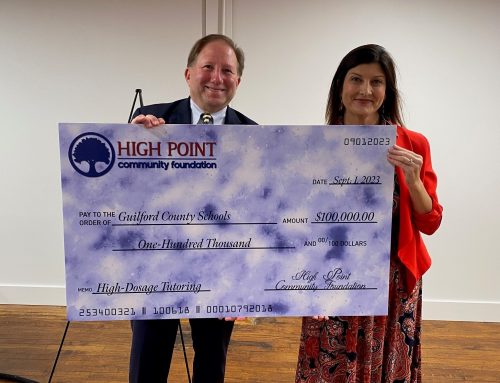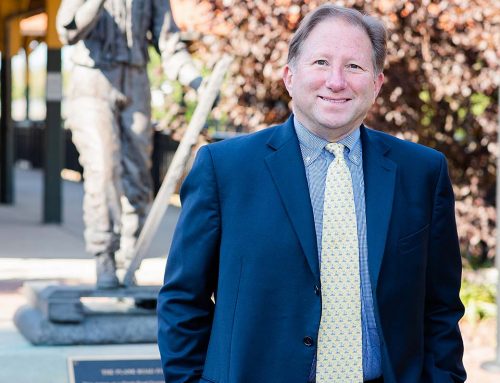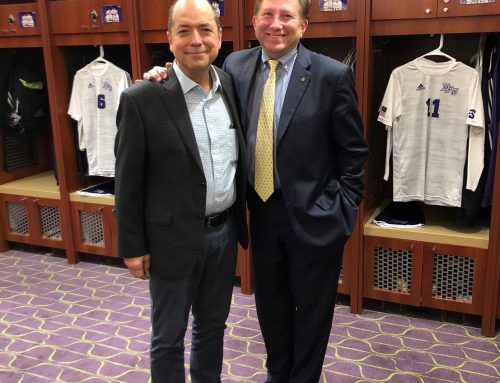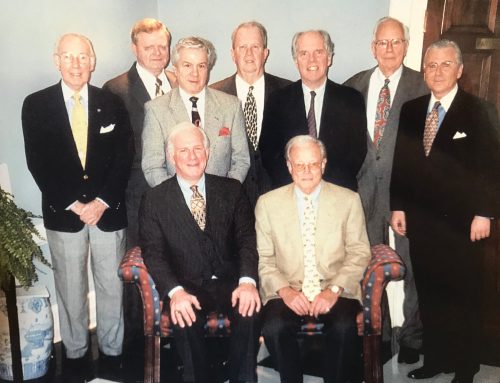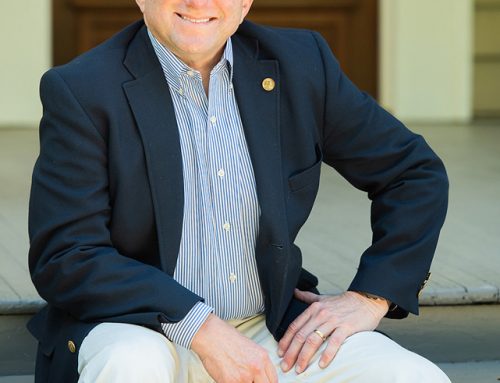For decades our society has talked about the most effective ways to break the cycle of poverty and hopelessness.
Theories abound and have created a cottage industry for publishing books about solutions that have never worked effectively. I believe in approaching societal problems one person at a time because every social ill at some point comes down to individual lives and choices.
On May 9 my friend, Greg Commander graduated from Laurel University with degrees in Christian Counseling and Theology and was named the recipient of the school’s highest recognition for inspiration and leadership, The Golden Laurel. Without knowing Greg’s story you might acknowledge the achievement but be tempted to file him away with all the other graduates who have walked across our local stages over the last few weeks.
That would be a grievous oversight, for Greg’s graduation was much more than just the acquisition of a diploma. It was a declaration of independence over generational poverty and learned helplessness which has irrevocably changed his life, his family and perhaps his entire community.
I met Greg seven years ago just after he had returned from an 18-year stint in federal prison earned for some very bad choices with gang life, drugs and violence. Unfortunately Greg’s story is all too familiar — harsh poverty and an unsettled home that included an absent father who struggled with addiction and a long suffering mother who singlehandedly held her family together with her faith, will and love.
When Greg was in the eighth grade his mother died and suddenly his world tilted off its axis. He and his siblings were on their own with little or no food, the water and power was turned off and they faced the sobering reality of eviction in a matter of days. Greg did what too many young black men devoid of hope do — he embarked upon a career of crime. He learned to sell drugs, built a thriving business and gathered like-minded young men around him who would eventually become known as the “Juice Crew” gang. Business was good and crime did briefly pay for Greg and his crew until their success made them the target of a federal task force. They were eventually arrested, successfully prosecuted and everyone one went to federal prison for 20 years or more.
Prison is an unforgiving environment and Greg, who had grown up fighting, understood the rules of survival and he initially lived day to day minding his own business while he served his time. Ironically, his incarceration became his salvation as it was the first structured environment he had ever encountered. A few years into serving his sentence he encountered a former English teacher who was being targeted for abuse by other inmates and negotiated a deal with him that would change his life. Greg offered to protect the teacher if he would teach him to read. Like too many children of poverty, he had progressed all the way to the eighth grade without ever learning to read.
For two years Greg worked diligently. He not only learned to read but became a passionate reader, and eventually went on to complete his GED. With his newly acquired ability to read a whole new dimension of opportunities opened up to him. He learned that incarceration has many connotations and while physical confinement was hard, intellectual and spiritual captivity was the real soul killer. Greg learned that to truly liberate a man, to make him absolutely self-sufficient, you teach him to read, which transforms his life perspective from a victim mentality to an agent of positive change.
When Greg immersed himself into a book, it allowed him to move beyond the prison walls, it expanded his vision of the world and eventually made him reconsider his place in it. He read through the Bible several times and experienced a spiritual awakening. Greg became a force for good in the prison, he embraced the power of servant leadership and began to see he could indeed positively impact his world. Greg, who is intuitively bright, enjoyed his newfound ability to help and lead others which would eventually lead to his early release.
Hank Wall, an unsung hero who mentors at-risk young men through local nonprofit, BATSO, Brothers Organized to Save Others, brought Greg and me together. I had been looking for a strong, credible African American man to reach these young men with the real, unvarnished truths about gang life. I knew the community well enough to understand these boys needed a man who looked like them, shared a common life experience and could speak with credibility and authority. Over time my search had become a source of good natured teasing that I was looking for my “Moses,” who would lead these young men to the “Promised Land.”
So, when Hank called and informed me that my “Moses” had arrived, my interest and excitement was peaked.
I’ll never forget my first glimpse of Greg, he was 6 feet 3 inches tall and weighed about 240 pounds. He wore a patch over his right eye which had been destroyed by a baseball bat in an altercation with a rival during his time on the street. Despite his formidable appearance, I was immediately struck by his gentle nature, his intelligence and his humility. We talked for over an hour and I walked away thinking about the tragedy of this man who had been blessed with so much potential that had in turn been so tragically misdirected. He seemed sincerely repentant and it was obvious he had a burning desire to make amends to his community. When I went to hear him speak to some students his passion and credibility was immediately apparent. He held their attention as he was very much in their face with the stark truth. His life experience gave him a sense of credibility that was palpable. He was vulnerable and honest with the students and willingly shared his challenges, fears, failures, mistakes and the life altering consequences they wrought.
Greg and I went to work on the content of his presentation and his technical skills. Soon he was going into our local schools to tell his story which he did to great effect for nearly two years. Whenever I brought in professional speakers for my Lighthouse Project, Greg would shadow them and learn their craft. In time he began to receive invitations to speak all over the region, state and then other parts of the country. He was maturing, growing intellectually and acclimating to a culture that had changed dramatically while he was away. It was obvious he possessed the talent to speak at the national level, but he lacked one crucial thing, a college degree.
During one of our weekly lunches, I finally broached the subject of college. I told him if he was going to reach his fullest potential he needed to pursue a college degree. I told him that I knew of a school right here in High Point that would be a perfect fit. I told him I would make some calls and within a week the good folks at Laurel University had agreed to give him one semester to prove he could do the work. As you can imagine, it was daunting challenge, perhaps the biggest Greg would ever face and it would be marked by great expectations, anxiety, loneliness, setbacks, triumphs, and yes, even humor.
The next four years were an incredible journey as I watched my friend travel a very challenging and at times a very lonely road. He had, of necessity, turned away from all his old friends who were still living “the life” and turned down several opportunities to make fast money which he desperately needed. His world became his studies, his fellow students and the staff and faculty at Laurel University, who accepted him with open arms and unconditional love.
Years later, as I look back I can plainly see the secret to Greg’s success was three fold — he had a strong faith that sustained him, an unrelenting desire to become self-sufficient and a consistently positive attitude. For every amount of effort I put forth I knew he would match it several times over.
Most of all, Greg Commander understood the significance of blazing this new trail and showing his community that if he, the man who had made every bad choice possible, could do it maybe they could as well.
Paul Lessard 6/12/15




